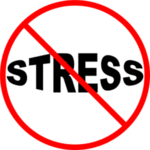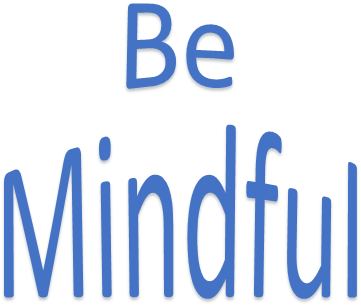My last post focused on the pandemic and the actions that my household is taking in response to it. This week, things have gotten more serious. Monday, our governor issued an executive order that calls for home isolation except to secure food and prescription medicine. Workers associated with essential services may go to work; all others must telecommute. It’s a troubling time.
In the midst of all this turmoil, I attended a virtual class on stress management and the immune response courtesy of my local Yoga/Tai Chi studio. Master Brian started the session by reminding us that we cannot control external circumstances. In fact, it creates stress and strain if we try to control them. We’ll get tossed about in waves of thoughts and emotions tied to outside events and information. We’ll lose our ability to stay grounded, to see things clearly, and to take right action. And we’ll weaken our ability to combat infection disease should we be exposed to it.
 These observations resonate clearly with a post I wrote two-plus years ago entitled Why Zebras Don’t Get Ulcers. It provided high level findings from Dr. Robert Sapolsky’s book by the same name. In it, he notes that chronic stress gives rise to hypertension, excess fatty acids/glucose/cholesterol, digestive disruption, bone disintegration, immune system suppression, memory decline, and sleep deprivation. In short, it damages vital systems, weakens the body’s defense mechanisms, and elevates the risk of illness and death.
These observations resonate clearly with a post I wrote two-plus years ago entitled Why Zebras Don’t Get Ulcers. It provided high level findings from Dr. Robert Sapolsky’s book by the same name. In it, he notes that chronic stress gives rise to hypertension, excess fatty acids/glucose/cholesterol, digestive disruption, bone disintegration, immune system suppression, memory decline, and sleep deprivation. In short, it damages vital systems, weakens the body’s defense mechanisms, and elevates the risk of illness and death.
While I’m seeing products that purport to bolster immune response fly off the shelves, I’m not hearing many folks talk about stress management and its role in bolstering immunity. Yet I suspect that managing stress is a far more effective strategy for immune system support than loading up on supplements.
Our exposure to news outlets and social media isn’t helping. It’s all gloom and doom. I get it; the pandemic is frightening. Its global impact has been devastating, and there’s no end in sight. We may need to hear how bad things are to get with the program on making sacrifices to keep ourselves and others safe. And yet a steady diet of that kind of reporting is not good for stress management. If you’ve already got the message, it’s probably best to be a little less informed.
 We need to create space between all that external stuff and our conscious awareness. When the gap is small, things that happen outside can hit us and knock us off our feet. They can take over our consciousness and stress us out. When the gap is large, we can simply watch what’s happening and remain unaffected. We can live in a state of total presence. We can let go of expectations tied to the external world and focus on the power and centeredness of our interior life.
We need to create space between all that external stuff and our conscious awareness. When the gap is small, things that happen outside can hit us and knock us off our feet. They can take over our consciousness and stress us out. When the gap is large, we can simply watch what’s happening and remain unaffected. We can live in a state of total presence. We can let go of expectations tied to the external world and focus on the power and centeredness of our interior life.
Admittedly, I’m not stellar when it comes to practicing presence. I get distracted easily, and unfavorable news can cause me to ruminate and worry. So, I’m making a point of developing habits and practices that run counter to my ingrained tendencies. I’m journaling in the morning to get the noise out of my head, onto paper, and then into the “circular file.” I’m tuning in to my daily Yoga-Tai-Chi (on-line!) class to encourage the practice of presence. And I’m establishing routines that create a sense of normalcy despite living in decidedly abnormal times. It all helps.
I’ve read and written about meditation but haven’t started a practice of it. It’s an auspicious time for me to work on quieting my body and mind. One step at a time. One day at a time.